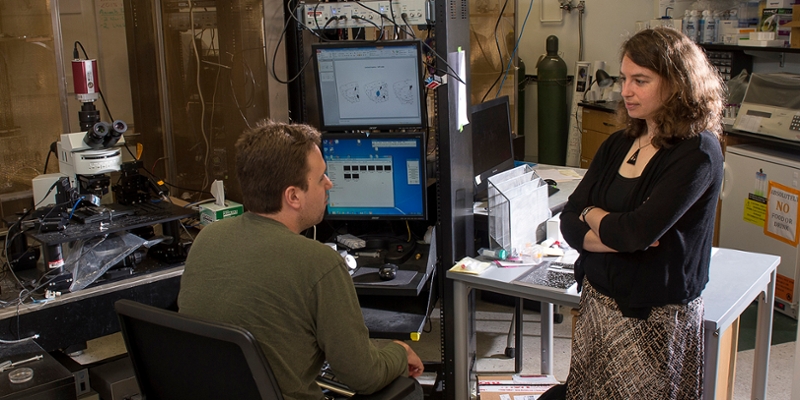BRAIN Initiative Grant Funds Study of Parkinson’s Circuits

Assistant Professor of Biological Sciences Aryn Gittis has received close to $387,000 from the National Institute of Neurological Disorders and Stroke through the federal BRAIN Initiative to study neuronal circuits involved in Parkinson’s disease.
Earlier this year, Gittis published a paper in Nature Neuroscience, where her research team was able to restore movement in a mouse model of Parkinson’s disease by using optogenetics to manipulate activity in two types of neurons found in the basal ganglia’s external globus pallidus. Their results showed an improvement in Parkinsonian symptoms that lasted far longer than current therapies, like deep brain stimulation and pharmaceuticals.
The new grant will allow her to further this research by exploring the cellular and circuit mechanisms that are changed by this treatment. Gittis and her research team will perform behavioral experiments that further examine what types of behavior are restored when the selected neurons are activated. They will also use in vivo recordings and optogenetics to map the neuronal circuits involved in the recovery of movement.
“If we can intervene in these circuits directly and restore their function, we can restore movement,” said Gittis, who is a member of Carnegie Mellon’s BrainHub neuroscience initiative and the Center for the Neural Basis of Cognition. “When we understand what is changing in the circuits, we can use it to improve existing therapies like deep brain stimulation.”
Carnegie Mellon researchers have received six grants from the federal BRAIN initiative this year. Since the initiative was launched in 2015, the university has received more than $10 million to advance neuroscience research.
By Jocelyn Duffy | jhduffy@andrew.cmu.edu